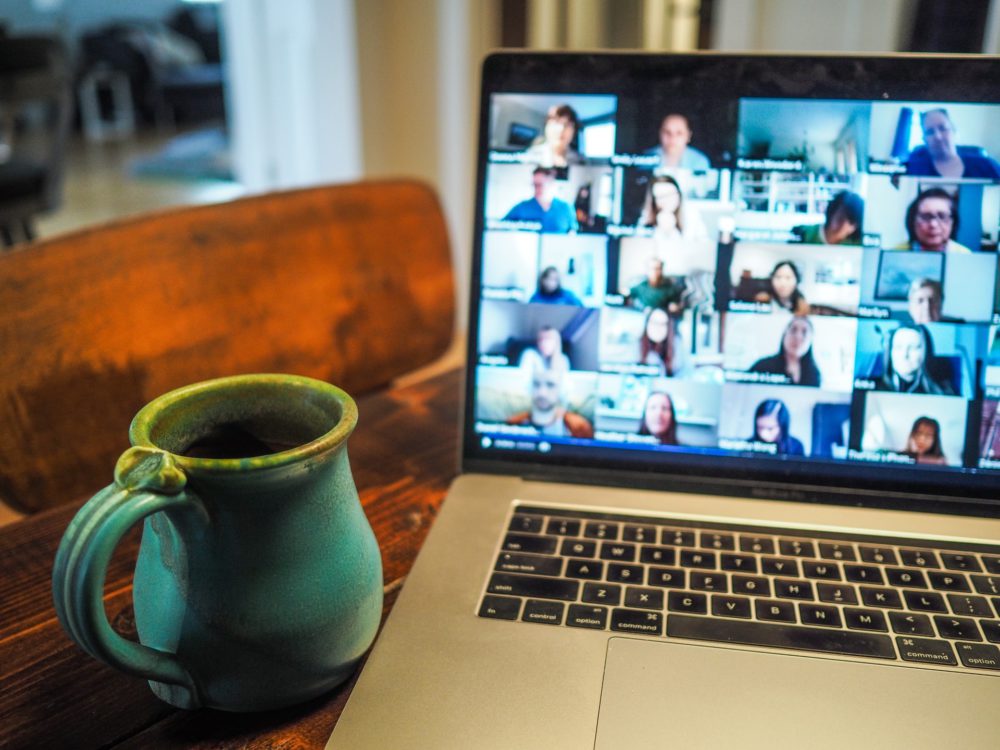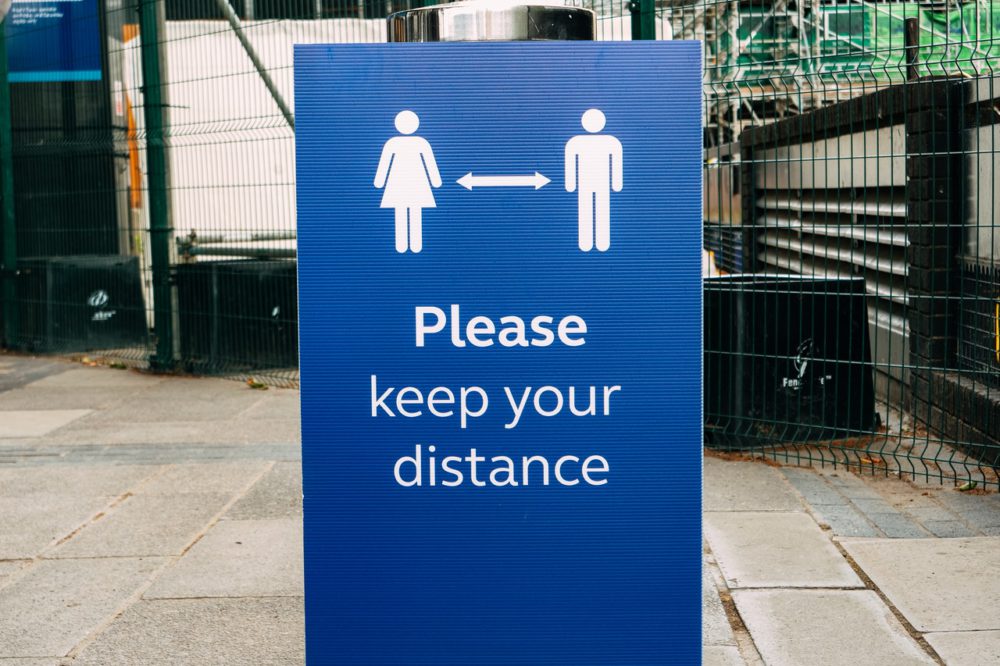How to save on car insurance during lockdown or working from home
If you’ve started to work from home then you might be wondering why you’re still paying the same for your car insurance as you were before the pandemic.
We calculated that UK drivers have cut 550 million miles a week from their driving as a result of their new working arrangements, so it’s only logical that the price of their car insurance should reflect that drop.
Perhaps you’re driving so little right now that you could stop paying for car insurance altogether by getting rid of the car. It might also be worth looking at more flexible car insurance, especially if you’re going to be working from home for the foreseeable future.
Whatever you do – shop around and find a good deal that works for you.
Consider making your car “SORN”
Making your car SORN (Statutory Off Road Notification) means telling the DVLA that your car isn’t parked or being used on a public road, and will be taken off the road.
One benefit is that you can save on car tax (be sure to ask for a refund) and you won’t have to buy car insurance while your motor is SORN.
The downside of your car being SORN is that:
- You can’t use your car on a public road (or even park it on a public road)
- There’s a bit of admin involved
- Your car isn’t insured unless you pay for SORN insurance, so if it’s stolen or damaged, you won’t be covered
If you do decide to SORN your car, before cancelling your insurance, check for cancellation fees and whether you can get a pro-rata refund on any unused insurance.
Also see gov.uk to register your vehicle as off the road (SORN).
Consider pay-per-mile car insurance
We created By Miles to help those who drive less than 7,000 miles a year with saving money.
If you still need the flexibility of a car but aren’t driving that much (especially if you’re working from home), then a fairer kind of car insurance that you pay by the mile could make sense.
With By Miles, you pay an upfront fee to cover your car while it’s parked. After that you only pay for the miles you actually drive.
So with a By Miles policy, if you don’t drive for a month, you won’t pay a penny that month. (Your car is already covered while it’s parked thanks to the upfront fee).
Also, there’s no penalty for driving more or less than you thought you might. It’s pay-per-mile, so if you drive a bit more, you pay a bit more. Similarly, if you drive less, you pay less.
For more details see what is pay-per-mile car insurance.
You can also get a quick idea of your pay-per-mile quote here:
By Miles FAQs on Car Insurance, Working from Home, Lockdown and Covid-19
Can I pause or freeze my car insurance during lockdown?
In short, no (sorry to be the bearer of bad news). If you want your car on the road then you are legally required to have car insurance.
But you do have options:
- You could make your car SORN (see above)
- If you’re driving less, you could switch to pay-by-mile insurance

Can I get a lockdown rebate or money back on my car insurance?
Annoyingly, very few insurers have offered any kind of rebate or money back as we’ve gone through the nightmare of Coronavirus lockdowns.
At By Miles, we think this is wrong and campaigned that the practice of not offering refunds when most people are forced to drive less is unfair.
By having pay-per-mile car insurance, customers at By Miles who drove less during lockdown automatically made a saving and were never charged for the miles they didn’t drive. We even relaxed cancellation fees for policies bought in April 2020, as people tried out pay-by-mile policies for the first time while their cars were parked up during lockdown.
Of course, some customers did end up needing to drive more and that’s another benefit of a By Miles policy. There’s no penalty for driving more or less than you initially said you would. If you drive less, you pay less. If you drive more, you pay more. We think that’s fair.
If you are looking for other ways to save then take a look at our guide to cheap car insurance.
Will driving during lockdown invalidate my insurance?
The short answer is no! While we recommend that drivers follow Government advice and avoid all non-essential travel at the moment, with a By Miles policy, you’ll continue to be covered as normal during this time.
Whether we’re in lockdown or not, your pay-by-mile policy is comprehensive, providing cover for social, domestic and pleasure use, whether parked or on the move (to see whether you’re eligible for additional cover like commuting and business use, please check out your Policy Schedule). If you’re continuing to keep up with the agreements outlined in your policy documents, you’ll always be covered.
Plus, with a pay-by-mile policy, you’ll only pay for the miles you actually drive. So if the car’s parked up during lockdown, you’ll pay less as a result.
Can I change to Third Party Only due to Covid-19?
No. Contrary to popular belief, third party only cover often increases the price of your insurance!
We want the best possible protection for our customers, so we only offer comprehensive cover which is currently rated ‘Excellent’ on Trustpilot by our members.
In addition, we only charge you for the miles you drive. That means if you’re not driving, you won’t pay a penny on top of your upfront fixed cost.
I no longer need commuting as I work from home. Can I remove “commuting” from my car insurance?
Some other insurers charge more for commuting cover because it means you’re likely to drive more.
Because you pay by the mile with us, we automatically include commuting cover where we can for free. That means removing it won’t change the price of your insurance with us.
Not everyone’s eligible for commuting cover, though. It depends on your details, so you should check the level of cover you’ve got with us on your policy certificate.
I’m struggling to pay my statements due to Covid-19. What should I do?
We know that Covid-19 is affecting people in many different ways.
If you’re struggling to pay a statement due to a loss of income that’s related to the coronavirus outbreak, we may be able to delay the date that your payment is due.
We don’t charge interest while your payment is delayed, meaning you won’t pay more than you would have done previously.
If you’re an NHS or key worker who has recently started driving more, we may also be able to offer you some assistance based on your circumstances.
We’re here to help. Just get in touch using the live chat on your app, or call us on 0330 088 3838.
I’m not driving because of Covid-19. Can a friend drive my car instead?
Unfortunately not, sorry about that. Our underwriters can only accept additional drivers that are your spouse, partner or other close family member.
Drivers with third party cover are welcome to drive your car (in an emergency) so they should check out their own cover to see if that is included. However, as the Miles Tracker needs to remain plugged in, you’ll be charged for the miles they drive.
If you want to add a driver on a temporary basis, it might be easier and cheaper to use temporary cover instead.
There are many providers of temporary insurance if you need it. We can’t make any recommendations, and you should do your own research to find the best policy. To help you on your way, you could look at tempcover.com.
Does my car insurance renewal quote take lockdown into account?
When we send you a renewal price, we want to make it as simple as possible for you to budget for the year ahead. So as well as letting you know your fixed upfront cost for the year, as well as your per-mile rate, we also work out an estimated total cost for the year.
Your annual estimate is based on how many miles we’ve charged you for so far in the year. If you’ll drive the same sort of journeys and distances in your next policy year, then you should expect your total annual estimate to be pretty accurate.
It’s worth remembering that if your circumstances change, you may end up driving more, or driving less the following policy year though. If you drive more, you’ll end up paying more in total, and if you drive less, you’ll pay less.
For example, 2020’s national lockdowns in the face of Covid-19 may have meant you drove less than usual, so the year ahead may see you drive more again. Please make sure you take this into account.
Your previous year of driving may also have seen you do more longer or shorter journeys. If you ever found yourself driving over 150 miles a day then you may have benefited from capped mileage discounts.
Of course if you’ve driven over 10,000 miles in a year, this will also have been the maximum you would have paid for – and you won’t pay for more than 10,000 miles for your next year either.
As you know, your overall cost for the year is your per-mile rate multiplied by the number of miles you drive in the year, added to your fixed upfront cost.

Driving Tips: Accidents Increase as Lockdown Eases
Update: 16 June 2021: If you’ve been out on the roads recently, you may have noticed that some drivers’ skills aren’t quite up to scratch since they’ve been driving less during lockdown.
We’ve seen an increase in accidents being reported to us over the last few weeks, so wanted to pass on what we’ve learned to help you avoid an accident.
1. Stay alert of other drivers who may be a little rusty.
It’s not you, it’s them, so always expect the unexpected. Other drivers aren’t always acting rationally, especially if they haven’t been on the roads much lately. We’ve seen a lot of accidents that have been caused by sudden braking or unexpected behaviour – so stay alert and keep your distance.
2. Be aware of what’s happening around you and always check your blind spot.
Whether you’re pulling out, changing lanes or taking a turn, remember that as well as looking in front, you should always check your mirrors and blind spot before you start moving the wheel. Cars, pedestrians, cyclists, e-scooters and other road users may be out of sight, so a quick look over your shoulder will help you see the areas your mirrors won’t.
3. Keep a distance of two seconds between your car and the one in front.
Always leave a gap of at least two seconds between your car and the one you’re behind. The increase in road traffic at the moment means sudden standstills are likely, and the two second rule allows you to have enough time to react if a car in front does something stupid (to put it bluntly).
Tips for getting back on the road as Lockdown eases
For more ways to get yourself and your car fighting fit take a quick look at 8 things to do before getting back on the road post-lockdown.




